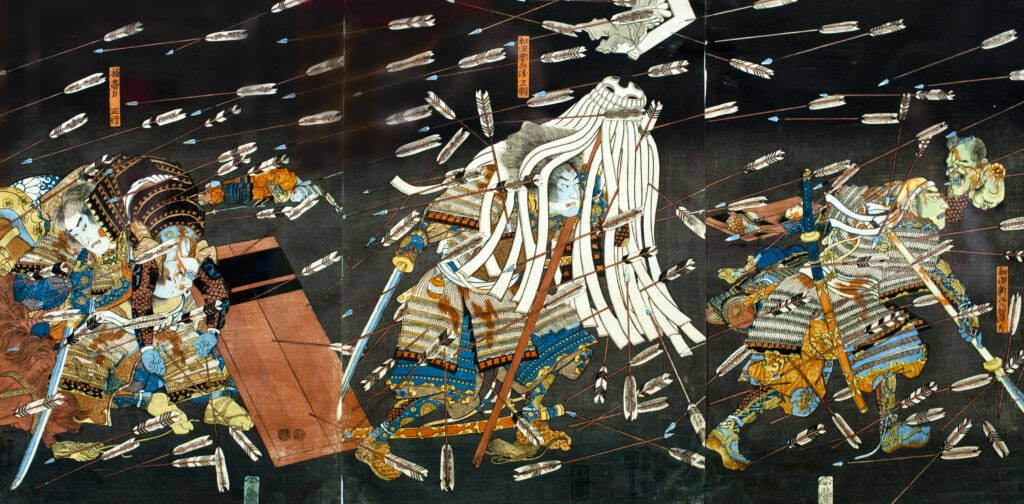
Jujutsu is one name for a group of unarmed or lightly armed close combat systems of Japan. While the roots of jujutsu may lie in the distant past, the term wasn’t coined until the 17th century. Jujutsu is based on a principle, the principle of ju–the way of softness, yielding, and adapting; however, this principle was put into practice well before this period and went by different names. Yawara is one such name and is another reading of the kanji 柔, signifying the ju of jujutsu. Naturally, there are ways of applying this principle that are not limited to a single method alone, and each of the many hundreds of different schools had their own specialty, the secrets of which they endeavored to keep to themselves. Typically, a blood oath was required to be taken in order to join a school that included not revealing the tradition’s techniques to outsiders. Today we enjoy the privilege of being able to openly practice these arts with deep roots that, in some cases, go back many centuries.
The term jujutsu was coined in the beginning of a period of more than two hundred fifty years of relative peace, known as the Edo Period, during which the Tokugawa Shogunate ruled Japan from its capital in Edo. This brought changes to the emphases of the martial arts as fighting moved from armored bushi on the battlefield to fighting in kimono and hakama. This is not to say that there was necessarily a decline in the effectiveness of these martial arts. While there was certainly a plethora of violence in this period relative to today, many samurai acted as bureaucrats during this period, and their martial prowess was at times called into question. However, the martial arts schools themselves sought prominence in inter-school bouts that often resulted in the death of the loser. Additionally, there were rebellions, uprisings, duels, etc. In this crucible were refined and systematized the sorts of techniques that would make their way to the general public in the form of judo and other gendai jujutsu systems such as the American ryuha, Danzan Ryu Jujutsu. The prevalence of jujutsu around the world today is a testament to the efficacy of these methods that are still practiced in one form or another by the world’s militaries and law enforcement personnel.